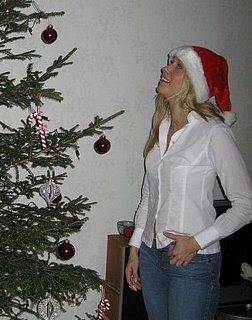
It’s what we have been discussing for a long time now – my friends and I. Just recently I learned that there has been waives of women’s movements for over hundred years. Probably earlier as well considering what
happened at Knossos way before Jesus was born. Where ever I am, there is always someone who will tell me that they have started thinking about this. Wondering what they can do to help women to obtain equality to men. We are not talking about men and women being the same, but being worth the same, given the same opportunities, strengths from both being valued.
For a group of my friends it’s so important to have this equality, that not being equals is used to offend someone. Kind of like when we where kids and would say “my cousin can beat-up your cousin” (oh if the cousins only knew what we promised they could do!). Now you can hear “I guess equality is more important to me than it is to you” if someone wants to win an argument without valid reasons.
Some things are a non issue to me that seam extremely important to others. We are talking about sharing the cleaning, doing dishes and laundry burden here. I’ve met people who can go on and on how important it is for them that the man does half of everything at home, like they want us to give standing ovations for their contribution to equality because they refuse to do more household chores that their man. What’s the fuss? Why date men who want a maid or are messy in the first place? I’ve never had to give this a thought before. All men in my life (including dad) has seen the benefit of a clean house, dishes and clothes as have I. Granted we have all had different opinions how things should be done or even when, but that’s not a big issue. I’m starting to think that men who are looking to find a maid or don’t know how to clean are not attracted to me. Or/and I don’t get attracted to them. A long time ago I read a book called
Women who love too much. I got it from an accounting client who said the book helped him a lot, so the title
“women” is not all correct: it’s for everybody who give more than they get. That was a parenthesis. The thing I remember most from that book is how it described all the signals we send out in a first meeting with a new person. Subconsciously. I guess my signals are pretty strong since I haven’t had to deal with the cleaning issue. Lots of other stuff of course! But not cleaning. Or it’s just that I have a higher tolerance level of filth then the guys I date.
The non equality issues I encounter are mostly in the work-environment. I’ve written a post about it as well. Today I got an old article (May 2004) from the Harvard Business Review about
Coaching the Alpha Male. They have a section called “What about Alpha Females?” and proceed to tell us that the researchers haven’t found a single woman with all the Alpha Male traits. They conclude this by saying “the corporate environment – and society as a whole – is much less tolerant of these characteristics in women than in men. So, far fewer women with these tendencies ever reach executive positions.” Did I get this correctly: we have built a society where traits generally seen in men are what will bring in the big dough and also what is getting high status? And women are told that they can achieve all this if they just buy into the predominate male way of being. And when they do: the society and the corporate environment do not accept this and will not promote these women into top executives anyway. We have to start thinking “outside of the box” here. Just because it’s been this way for a very long time doesn’t make it right.
What can we do to make a change so that everybody can benefit?
Over a couple of beers with my fellow theatre-students, we where discussing the base-camp metaphor. How in order to climb Mount Everest you need a good base-camp or you’ll never get there. Executives in large corporations have a wife who will make sure the base-camp is working, or they wouldn’t make it to the top. Even one of the Nobel-price winners talked about him benefiting from having a wife while it was harder for her to be a scientist since she didn’t have a wife. Well she was a scientist and worked along side with him, but because she didn’t have a “wife” she did not get the award. Here wife = base camp. The idea is that you do what is best for the unit. There are many examples of switched roles as well, where the woman brings in the dough and the man makes sure the base-camp is working. The CEO of a large Swedish bank is a woman who is married to a younger man from the analytics department in the bank. For them it was more feasible that he stayed home with the kids during the 9months of paid *) parental leave we are entitled to in Sweden. One of my favourite blogers: Mal, speaks about a similar situation. It is a great comfort to me that we have reached this level. We see more and more of this where families make choices which benefit the entire unit and it’s not always the man who has to sacrifice his time with his children. It would of course be nicer if everybody where able to spend more time with their children. What families loose in income, they might gain in not having to pay psychotherapists later on. Penelope Trunk has some thoughts about this as well.
So one of the single guys from the theatre class leans forward and asks me - with hope in his voice - if I’m looking for someone to take care of my base-camp. And actually: no. I want someone to climb along side with me. I know it’s not possible to reach Mount Everest that way, but that’s ok. With the right person I’d be happy with just a small hill.
If you’ve read all above you realise that I still haven’t been able to tie everything together. What is it that I’m saying? Some things sound contradictory. My thoughts are not in order yet. I do know that we need to work on getting a better place for everybody. More healthy and more productive. Other things than what you see today have to be valued. How do we get there?
*) you only get paid up to a certain level which is far less than she makes as a CEO.


